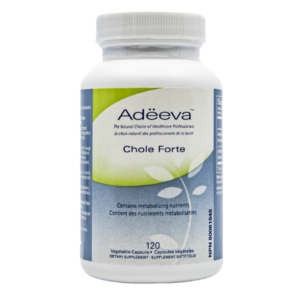
Unlocking the Secrets to a Long and Healthy Life: Insights from the AHA's Essential Recommendations
Source: JAMA Internal Medicine (February 20230)
Lifestyle Medicine Update (August 2, 2023)
Introduction: The Quest for Lifelong Health
In a world where the pursuit of longevity is paramount, the American Heart Association (AHA) has unveiled a roadmap to optimal health. With its Eight Life Essential Recommendations, the AHA aims to empower individuals to chart a course towards a vibrant and disease-free existence.
The Pillars of Wellness: A Closer Look
Diving into the core principles of the AHA’s recommendations reveals a tapestry of lifestyle choices that serve as the foundation for longevity:
- Not Smoking: A cornerstone of good health, abstaining from smoking is paramount in safeguarding the body against a myriad of diseases.
- Regular Physical Activity: Engaging in moderate endurance activities for at least 150 minutes per week not only invigorates the body but also fortifies the spirit.
- Maintaining a Healthy Weight: Striving for a body mass index (BMI) near 25 ensures optimal physical well-being.
- Embracing Healthy Sleep Patterns: With 7-9 hours of restorative sleep each night, the body rejuvenates and prepares for the challenges of the day ahead.
- Maintaining Healthy Blood Pressure and Glucose Levels: Keeping blood pressure under 130/80 and blood glucose levels around 90 mg/dl fosters cardiovascular health and wards off chronic diseases.
- Ensuring Optimal Non-HDL Cholesterol Levels: By maintaining non-HDL cholesterol, especially LDL-cholesterol, within the ideal range, individuals mitigate the risk of heart disease and stroke.
The Revelations of the UK Biobank Study
In a groundbreaking study published in the JAMA Internal Medicine journal, the UK Biobank sheds light on the transformative impact of adhering to the AHA’s recommendations. Following over 135,000 adults for several years, researchers discovered a profound correlation between adherence to the Life Essential Recommendations and overall health outcomes.
The Power of Lifestyle Medicine: A Testament to Transformation
As individuals embraced healthier diets and lifestyles, their cardiovascular health scores soared, leading to longer life expectancies and fewer years plagued by chronic diseases. Regardless of sociodemographic backgrounds, the benefits of adopting the AHA’s recommendations were unequivocal, underscoring the universal appeal of a lifestyle rooted in wellness.
A Vegetarian Revolution: The Role of Diet in Cardiovascular Health
In a stunning revelation, a study published in JAMA underscored the pivotal role of dietary choices in cardiovascular health. Transitioning to a healthier, more vegetarian diet yielded significant improvements in LDL-cholesterol, blood pressure, and body weight, heralding a new era in preventive medicine.
Conclusion: A Call to Action for Lifelong Wellness
Armed with the insights gleaned from these seminal studies, individuals are empowered to seize control of their health destinies. By embracing the Eight Life Essential Recommendations and adopting healthier dietary habits, they pave the way for a future marked by vitality, longevity, and unparalleled well-being.
References:
- Wang X et al. Association of cardiovascular health with life expectancy free of cardiovascular disease, diabetes, cancer, and dementia in UK adults. JAMA Internal Medicine. Feb 27, 2023
[Link](https://jamanetwork.com/journals/jamainternalmedicine/article-abstract/2801750) - Life’s Essential 8: Higher Scores Extend Health Span. Medscape, March 27. 2023. Dr JoAnn E. Manson MD DrPH.
[Link](https://www.medscape.com/viewarticle/989752) - Life’s Essential 8 – American Heart Association. [Link](https://www.heart.org/en/healthy-living/healthy-lifestyle/lifes-essential-8)
- Wang T et al. Vegetarian dietary patterns and cardiometabolic risk in people with or at high risk of cardiovascular disease. JAMA (July 23, 2023) [Link](https://jamanetwork.com/journals/jamanetworkopen/fullarticle/2807597)
- Vegetarian Diets Can Improve High-Risk Cardiovascular Disease. Nancy A. Melville. Medscape, July 23, 2023
[Link](https://www.medscape.com/viewarticle/989752)
Eat Smart, Live Well, Look Great,
Dr. Meschino
- Not Smoking
- Regular Physical Activity – 150 mins per week of moderate endurance activity/exercise
- Healthy Weight – at or near body mass index of 25
- Healthy Sleep Patterns – 7-9 hours per night
- Blood Pressure in healthy range – under 130/80
- Blood Glucose in a healthy range – close to 90 mg/dl (5 mmol/l)
- HbA1c around 5.1 (to prevent sugar-coating blood proteins linked to heart disease and stroke)
- Non-HDL cholesterol in a healthy range (especially LDL-cholesterol) – LDL-cholesterol no higher than 2 mmol/l or (76 mg/dl) or preferably below 1.5 mmol/l (57 mg/dl)
Based on these recommendations the UK Biobank Study published results of their findings in the February 2023 issue of JAMA Internal Medicine journal. The UK Biobank Study followed 135,199 adults, average age 55, who were free of chronic diseases such as cardiovascular disease, cancer, diabetes, and dementia at the outset of the study. The participants were divided into three groups based on their AHA 8 Life Essentials Score – low, moderate, and high scores. High scores being the most desirable. They also gave each participant a cardiovascular health score of low, moderate, and high, with a high cardiovascular health score being the most desirable. After following these patients for many years the results showed that a high cardiovascular health score was associated with substantially longer life expectancy and remaining free of 4 major chronic diseases (cardiovascular disease, diabetes, cancer, and dementia) in both men and women. This was true for people of all sociodemographic backgrounds, meaning that higher education and income did not change the results. Individuals who had healthier diets and lifestyles, who naturally scored higher on measurements of cardiovascular health (blood pressure, blood sugar, LDL-cholesterol, regular exercise) had exceptionally better health overall, as the years went by, compared to those with lower cardiovascular health scores. As one of the researchers commented, “Men with high cardiovascular health scores tended to have an additional 7 years of life expectancy, free of chronic disease, compared with those who had lower scores. In women, the difference was about 9.5 years between high scores and lower scores. Also, the number of years lived with chronic disease was compressed in those with high cardiovascular health scores. They tended to have fewer years living with those chronic diseases but more years living free of chronic diseases. This is called quality of life or health span or healthy life expectancy. It all means the same thing. It translates into putting in the effort, through diet, exercise, and other lifestyle practices, to maintain a highly functioning body and mind for as long as possible.
The UK Biobank Study tells us that healthy diet matters (avoiding saturated fats, trans-fats, fried foods, super sugary foods, alcohol etc.) and that 150-minutes of moderate endurance exercise makes a difference. As does keeping your blood pressure and LDL-cholesterol in the ideal range through healthy diet, healthy weight, and regular exercise habits (and medication if necessary). In the words of Dr. Joann Manson MD Ph.D, a lead researcher and professor at Harvard Medical School and Brigham and Women’s Hospital, “Overall, the findings make a compelling case for the importance of lifestyle factors in extending health span and years free of chronic disease. It can be motivating to tell our patients that a healthy lifestyle not only extends life expectancy but also extends years of health, free of chronic disease.
What’s interesting is that a few months later (July 2023) JAMA published the results of another large study showing that in patients at high risk for cardiovascular disease, the meta-analysis shows that switching to a healthy, more vegetarian diet for just 6-months reduced the bad cholesterol (LDL-cholesterol), HbA1c (another important risk factor for heart disease) and body weight to a significant degree. The healthy dietary change also reduced the need for medication. The researchers remind patients that not all vegetarian diets are healthy. For instance, deep-fried foods like French fries and potato chips are vegetarian, but they are not healthy choices. The same is true for foods with palm and coconut oil (like the Beyond Meat products). Some of the healthier, more vegetarian diets that produced good results included diets allowing egg whites, and non-fat dairy products, as well as seafood and some fish, along of course with more vegetables, legumes (beans and peas), including soy products, some nuts and fruit and whole grain products. There is now convincing evidence that switching to a healthier, more vegetarian diet can appreciably improve your cardiovascular health score, as it lowers LDL-cholesterol, blood pressure and body fat. According to the UK Biobank Study these improved health markers bode well for more years of disease-free living, a longer life span and healthy life expectancy.
Once again lifestyle medicine is good medicine. So, I would encourage you to keep the 8 Life Essentials outlined by the AHA top of mind in your quest for optimal health and longevity. I have included the references for this information in the text below.
References:
Wang X et al. Association of cardiovascular health with life expectancy free of cardiovascular disease, diabetes, cancer, and dementia in UK adults. JAMA Internal Medicine. Feb 27, 2023 https://jamanetwork.com/journals/jamainternalmedicine/article-abstract/2801750
Life’s Essential 8: Higher Scores Extend Health Span. Medscape, March 27. 2023. Dr JoAnn E. Manson MD DrPH. https://www.medscape.com/viewarticle/989752?ecd=mkm_ret_230801_mscpmrk-OUS_InFocus_etid5692664&uac=342474MN&impID=5692664
Life’s Essential 8 – American Heart Association https://www.heart.org/en/healthy-living/healthy-lifestyle/lifes-essential-8
Wang T et al. Vegetarian dietary patterns and cardiometabolic risk in people with or at high risk of cardiovascular disease. JAMA (July 23, 2023) https://jamanetwork.com/journals/jamanetworkopen/fullarticle/2807597
Vegetarian Diets Can Improve High-Risk Cardiovascular Disease. Nancy A. Melville. Medscape, July 23, 2023 Vegetarian Diets Can Improve High-Risk Cardiovascular Disease (medscape.com)
Eat Smart, Live Well, Look Great,
Dr. Meschino
Recommended Supplements

Dr. James Meschino
ABOUT THE AUTHOR
Dr. James Meschino, DC, MS, ROHP, is an educator, author, and researcher having lectured to thousands of healthcare professionals across North America. He holds a Master’s Degree in Science with specialties in human nutrition and biology and is recognized as an expert in the field of nutrition, anti-aging, fitness, and wellness as well as the author of numerous books.


